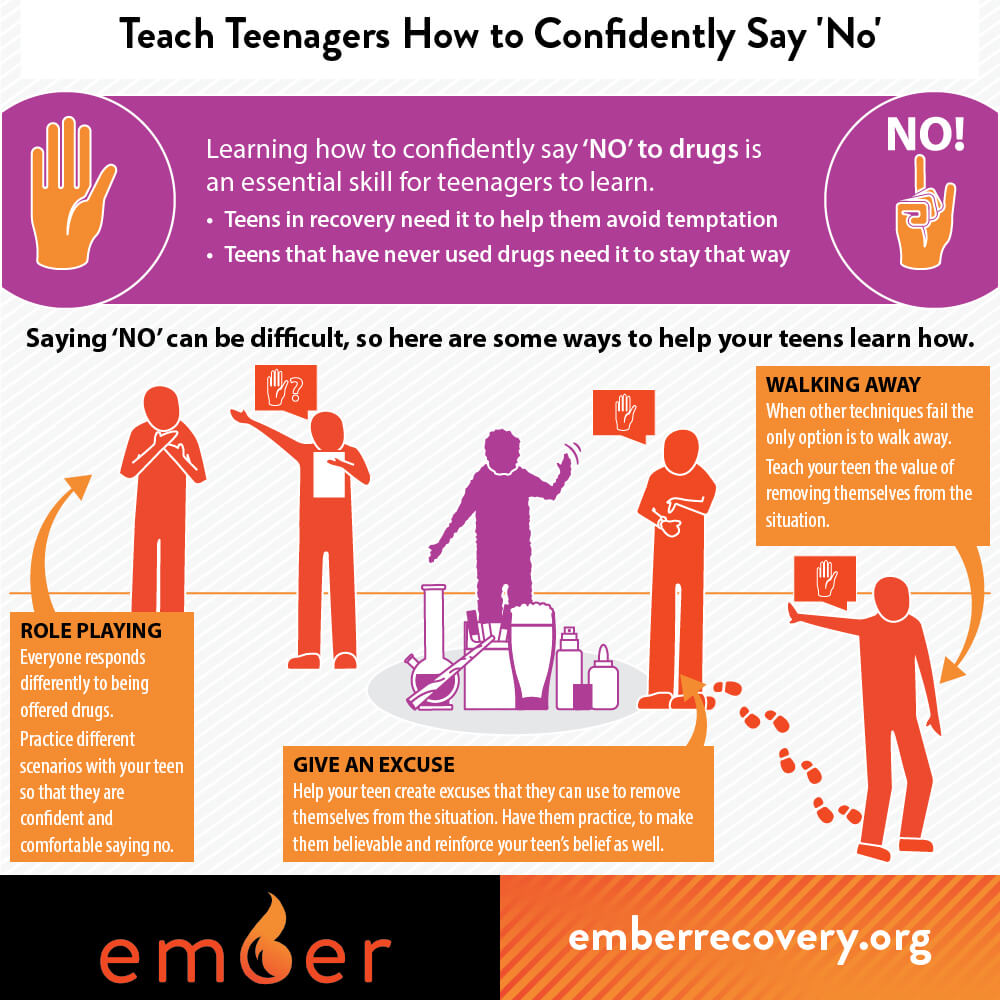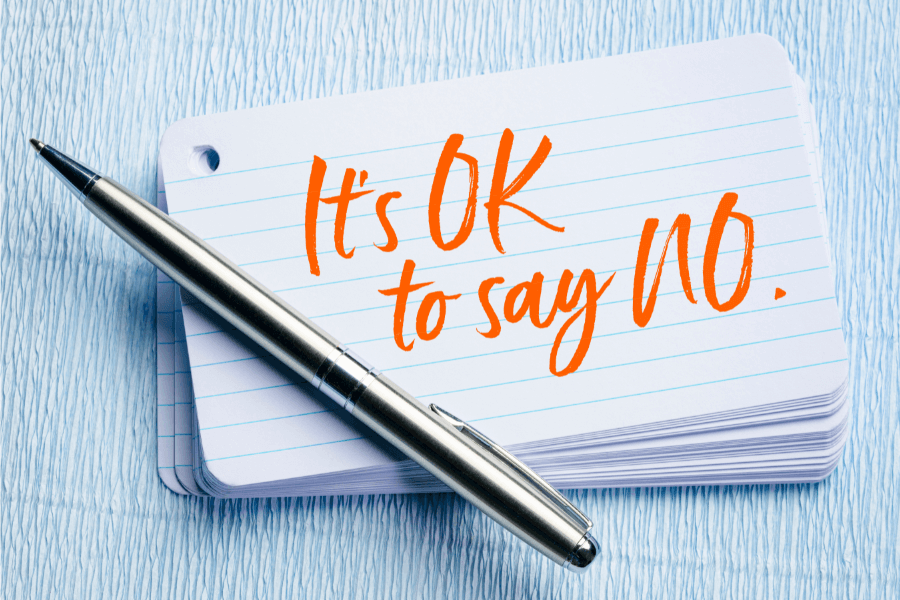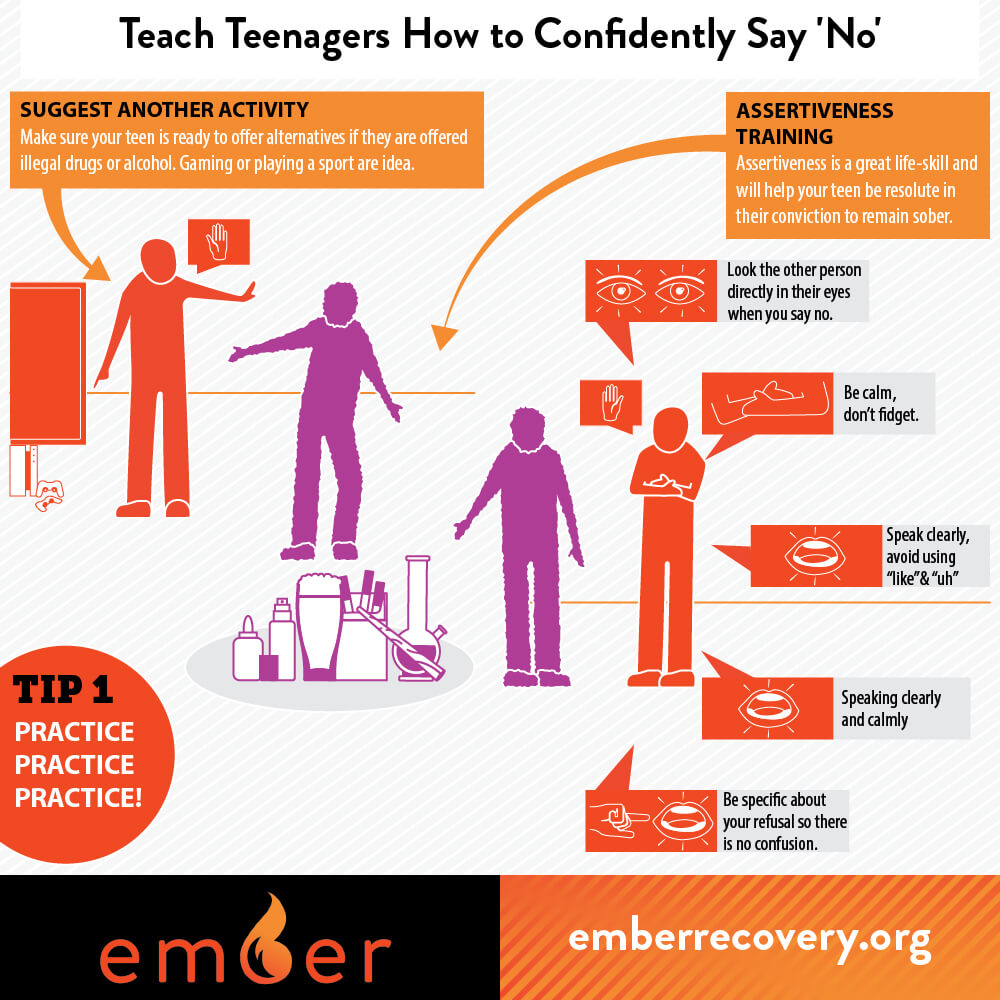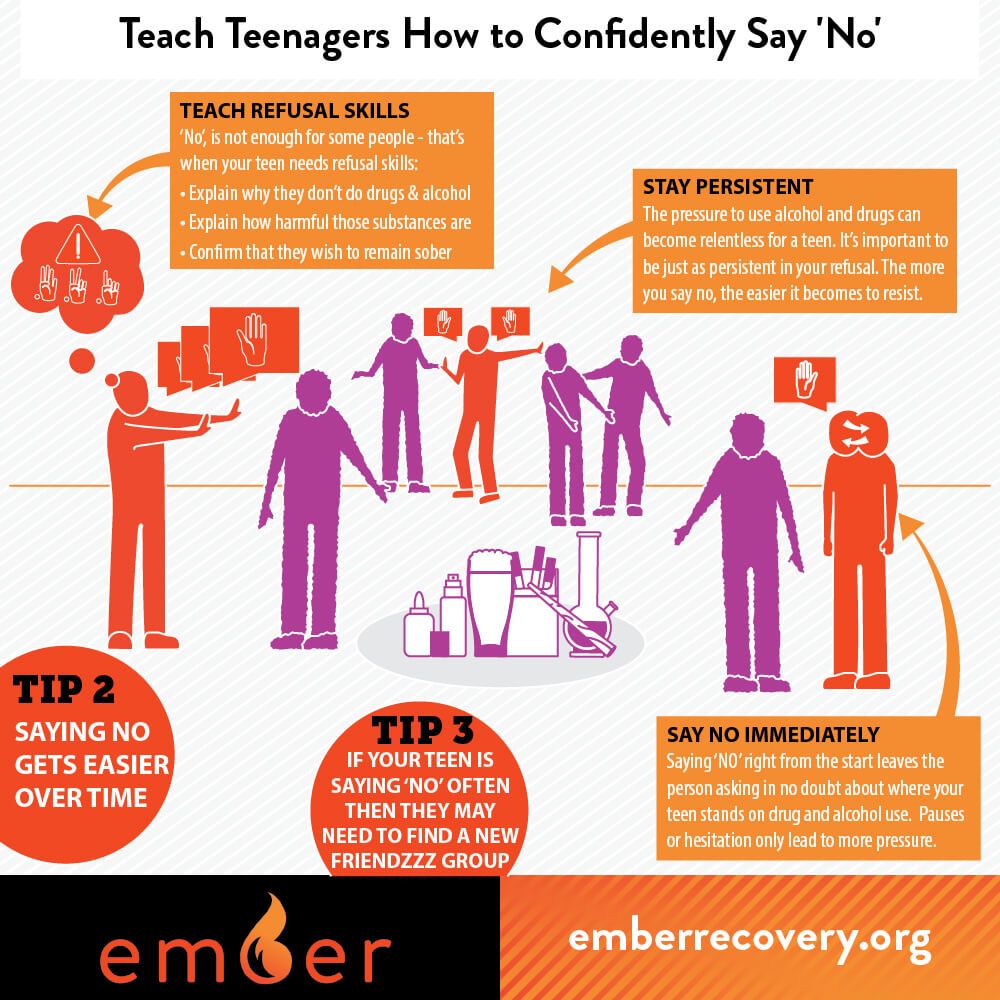Seeking treatment for alcohol and drug use means not only getting help to fight the substance abuse disorder but also learning how to say no to temptations once the program is over. The importance of saying no is equally as vital for teens who have never used substances before so that they don’t develop dangerous habits. While many people tell teens to say “no,” it can be more complex than that. Many teens need to have the confidence to reject drugs and alcohol. We’re going to provide some tips to help your teen learn how to say no to drugs and alcohol confidently and how adolescent residential treatment centers in Iowa can help.
From Adolescent Residential Treatment Centers in Iowa: How to Teach Your Teen to Say No to Drugs and Alcohol
Role Playing
Many teens don’t know how they would react to a situation when they are offered drugs and alcohol until they are put in that position. You can try different role-playing scenarios to help your child prepare themselves for these situations.
You can pretend to be a friend pushing them to use drugs or alcohol and see how they react. Teach them to try to change the subject to see if that helps. You can continue to push the topic to see if they would be tempted to give in if the other person didn’t let up.[1]
Give an Excuse
Have your teen remove themselves from the situation by giving an excuse to escape. Practice an excuse so that they are confident in what they are saying. One reason could be to say that a parent just called and they have to leave. They can also say they have a doctor’s appointment. The excuse must be believable to the other person, and the teen must also believe it themselves.
Adolescent Residential Treatment Centers in Iowa Teach You to Walk Away
One of the main ways to say no to drugs or alcohol is to walk away, primarily if other tactics haven’t worked. Teach them to say no as they walk away from the situation. By removing themselves from the problem, they are no longer faced with the temptation.
Suggest Another Activity

Your teen can try to suggest another activity if someone is pushing them to use illegal drugs or alcohol. They can ask the other person if they want to play a video game, play a sport, or do anything to escape the situation.
Assertiveness Training
Teaching your teen to be assertive can go a long way in saying no to drugs or alcohol. They can practice assertiveness by doing the following:
- Looking the other person in the eye when saying no
- Not fidgeting
- Speak clearly and avoid using “like” and “uh.”
- Speaking clearly and calmly
- Being specific in their refusal so there is no confusion
Teach Refusal Skills
Some people won’t take no for an answer, so teens need to know refusal skills. This involves explaining why they’re not going to use drugs or alcohol. They can explain that they are trying to remain sober and how harmful those substances are. As your teen practices these refusal skills, they will be more assertive as they explain their stance. Over time, it will become second nature for them to explain why they won’t give in to temptation.
Stay Persistent
Peer pressure to do drugs and try alcohol can become relentless. Your teen must learn to become just as persistent in their effort to say no. As they learn to go toe-to-toe with every time they are approached, they will become more confident in their refusal.
Say No Immediately
If your teen pauses in their refusal, the other person may feel they can be successful regarding their offer. Your teen needs to say no right away so there is no question about where they stand. Saying no from the start makes their stance very clear.
If your teen constantly finds themselves in a situation where they are faced with drugs and alcohol, it may be time to make new friends. They should not continually have to be around substances and have to respond to peer pressure repeatedly. Encourage them to find new friends who won’t pressure them to use substances.
Seek Adolescent Residential Treatment Centers in Iowa at Ember Recovery
At Ember Recovery, we focus on not only teaching teens how to live a sober life but also how to continue on a sober path by learning to say no to drugs and alcohol once their program is over. Our aftercare recovery planning teaches vital skills that teens can use to say no to illegal drugs and alcohol. They will learn how to face temptation and remain on a sober path.
Aftercare recovery planning also includes continued counseling and recovery support groups to give teens the resources they need to stay sober. If you’re looking for adolescent residential treatment centers in Iowa for your teen, let Ember Recovery help. We have helped thousands of teens find their path to sobriety; let us help your teen find theirs. Call us or contact us online to learn more.
Sources:
[1] https://www.bbbsstjohns.org/uploads/2/5/0/8/2508535/saying_no_to_drugs.pdf

Andrea Dickerson is a Licensed Therapist and Certified Substance Use Counselor who has worked in behavioral health since 1997. Currently, Andrea is the Director of Behavioral Health, overseeing the Ember residential treatment programs and YSS outpatient counseling clinics throughout Central and North Central Iowa. She became a Motivational Interviewing (MI) trainer in 2006 and provides MI trainings throughout Iowa.
Andrea specializes in working with adolescents and their families and enjoys seeing the family relationships grow through therapy. Andrea is also a CARF International Surveyor, going around North America ensuring behavioral health organizations are meeting required standards.
In her free time, Andrea enjoys cheering on the Iowa Hawkeyes and Chicago Cubs, as well as being an active member of Soroptimist International of the Americas (SIA), a global organization that provides women and girls with access to the education and training they need to achieve economic empowerment. She has been a member of the SI of Des Moines club since 2012 and has been actively involved at the regional level, currently serving as Co-Governor of the Peaks to Plains Region.
Through her involvement in SIA, Andrea has been actively involved in the Dream Programs, coordinating annual Dream It, Be It: Career Support for Girls projects, which give girls the tools they need to achieve their education and career goals, empowering them to break cycles of poverty, violence, and abuse.


